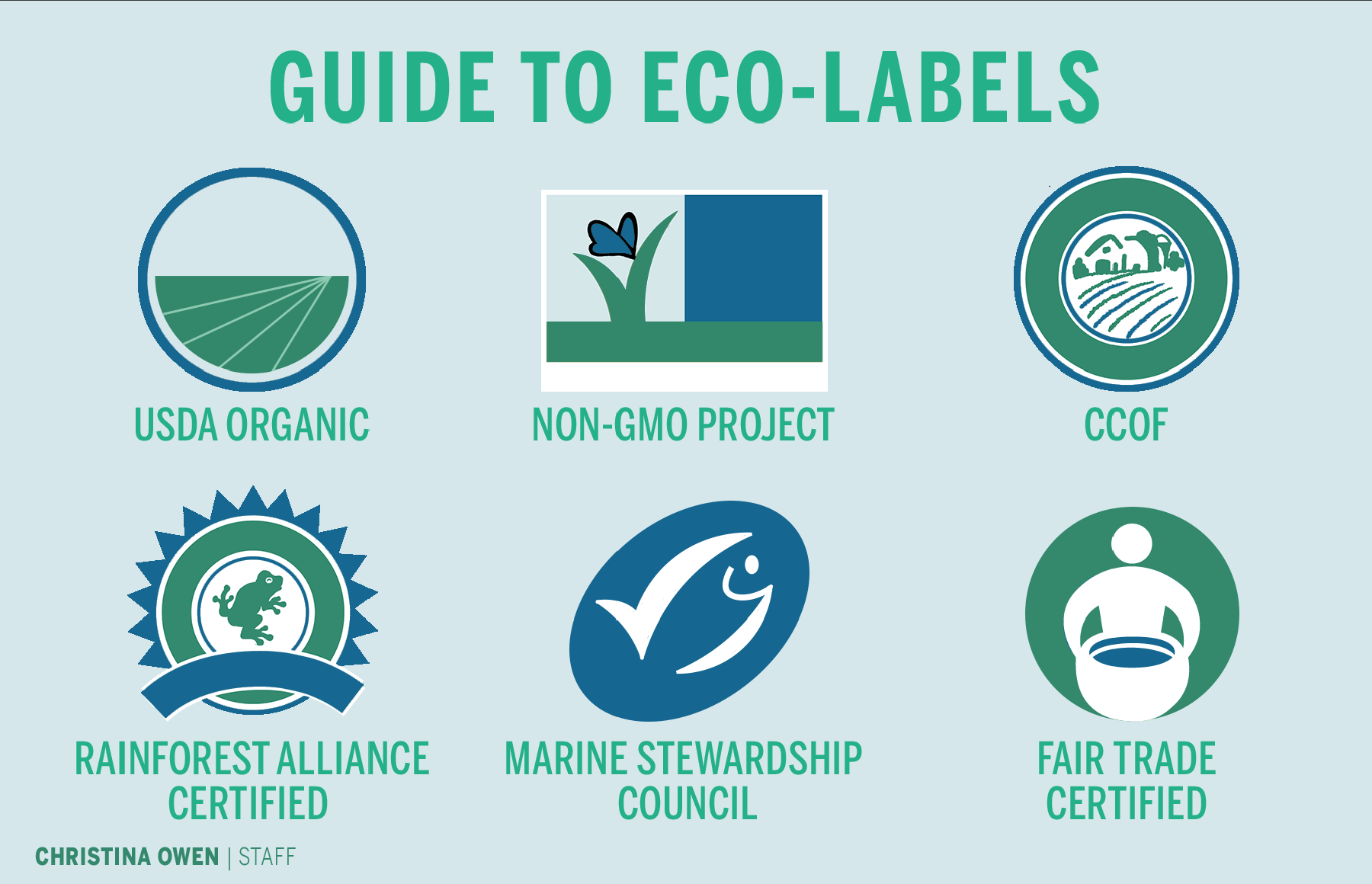As you wander the aisles of your local grocery store, you will see the eye-catching terms “organic,” “all-natural,” and “fair trade” all around you. Food packaging is treated in vague terms that suggest a product is sourced ethically and sustainably, but what do they really mean?
Ecolabels are voluntary labeling systems that certify that a product meets specific environmental performance standards and provide valuable information on how food was made. However, eco-labels rarely provide information on their criteria, making it difficult to distinguish between verified sustainability and “greenwashing”. Greenwashing is the use of misleading information to make a product appear more sustainable to consumers. By being familiar with credible eco-labels, we can avoid succumbing to greenwashing amid our efforts to be conscientious consumers.
If you’re looking to make more informed decisions during your next trip to the grocery store, here’s a breakdown of the most common eco-labels.
Non-GMO project
The Non-GMO Project is a non-profit organization with a rigorous verification process, which ensures that a product contains a minimum of genetically modified organisms, or GMOs. Each ingredient must have a GMO content less than a certain threshold, which varies depending on the crop from which it is derived. Since GMOs contribute to biodiversity loss and increased herbicide use, you can opt for a product with this eco-label.
USDA organic
The USDA organic label is a certification protected by federal regulation. Organic products with this label are grown without the use of prohibited pesticides, and organic meat is produced from cattle that are fed organic food and are not administered antibiotics or hormones. Organic producers must rely on natural substances and bio-based agricultural practices to the greatest extent possible, preserving soil quality and crop health.
Certified by Rainforest Alliance
Rainforest Alliance is a non-profit organization with a comprehensive certification process focused on ecosystem health and economic stability in rural communities. The certification programs promote sustainable land management practices and fair working conditions.
Fair Trade Certificate
Fair Trade Certified is a non-profit organization that advocates for ethical supply chains by promoting environmental stewardship and sustainable incomes for farmers. Products with this label must meet rigorous standards that demand safe working conditions, sustainable land management, and the empowerment of farming communities.
Marine Administration Council
The Marine Stewardship Council, or MSC, is an international non-profit organization that works with fisheries to safeguard the world’s supply of seafood and ocean health. Fisheries must adhere to the three MSC sustainable fishing principles: minimize the impact on the ecosystem, fish only in healthy populations, and manage fishing activity to avoid overexploitation.
Certified by Food Alliance
Food Alliance is a non-profit organization focused on promoting sustainable agriculture. To become certified, companies must implement practices that conserve natural resources, reduce pesticide use, treat animals with compassion, and maintain fair working conditions. The thorough certification process considers environmental, social and economic factors to ensure the sustainability of the food and agricultural industries.
CCOF
California Certified Organic Farmers, or CCOF, is an organic certification organization accredited by the US Department of Agriculture.As with the Non-GMO Project, this eco-label guarantees that a product is GMO-free and was made using organic practices. , which maintain soil fertility and the balance of ecosystems.
Your weekly grocery shopping is an opportunity to “vote” with your money supporting businesses that invest in sustainability and conservation. By incorporating sustainable consumption habits into our daily lives, consumers have the collective power to set the standards for the food and agriculture industries.
Contact Chloe Tiltonat [email protected].

